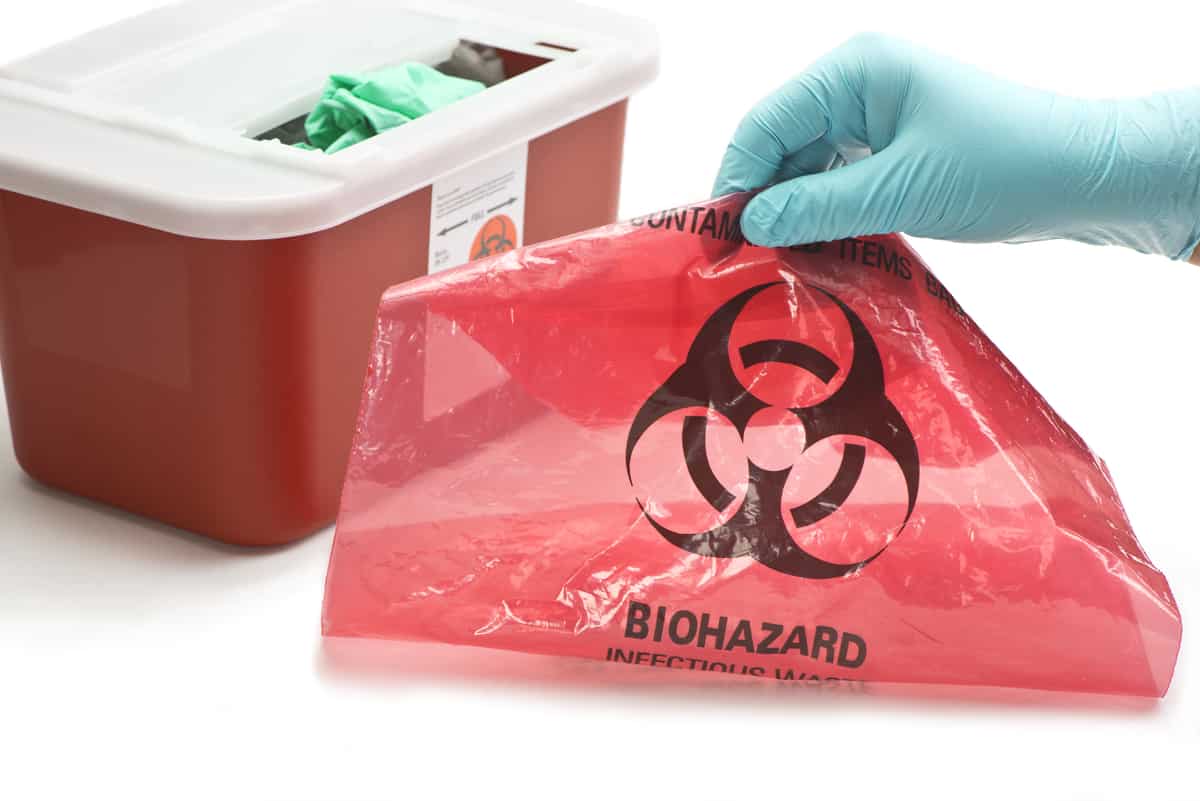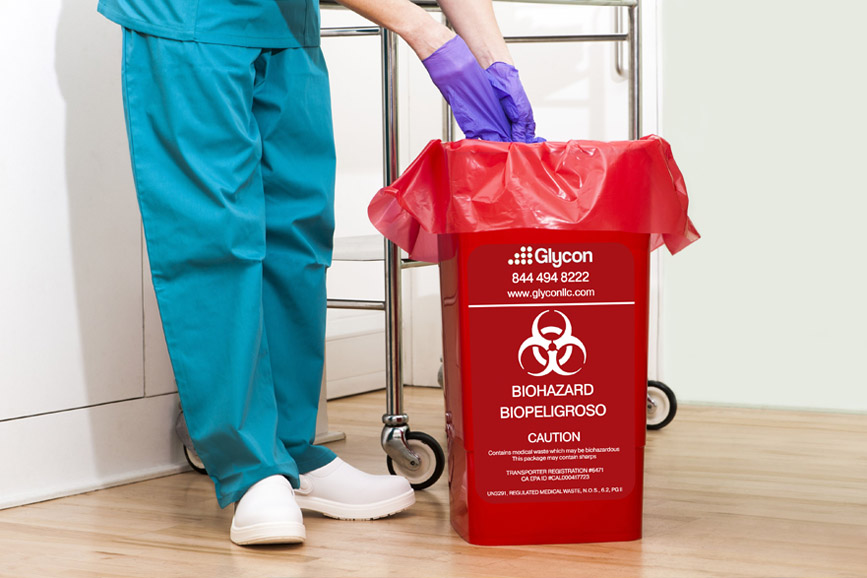Beyond Clean-up: Ensuring Safety And Security with Specialist Medical Waste Removal
Beyond Clean-up: Ensuring Safety And Security with Specialist Medical Waste Removal
Blog Article
Stay Ahead of Regulations: Expert Recommendations on Medical Garbage Disposal
In a globe where the medical care industry is frequently progressing, it is important for clinical facilities to stay in advance of policies when it comes to the proper disposal of medical waste. From comprehending the various categories of clinical waste to implementing the right collection and partition methods, this conversation will supply useful insights and workable tips to assist facilities stay in advance of policies in the ever-changing landscape of medical waste disposal.
Comprehending Clinical Waste Categories
Understanding medical waste groups is important for proper disposal and monitoring in health care centers. Medical waste describes any kind of waste produced by medical care activities that might posture a risk to public wellness or the environment. It is vital to classify clinical waste properly to guarantee its risk-free handling, disposal, transportation, and treatment.
There are several groups of clinical waste that health care centers need to be aware of. The most common categories consist of contagious waste, pathological waste, sharps waste, pharmaceutical waste, and chemical waste. Each category has specific guidelines and policies for its appropriate administration and disposal.
Pathological waste refers to human cells, organs, or body parts that need special handling and disposal. Pharmaceutical waste makes up expired, extra, or polluted medicines that need mindful handling and disposal.
Remaining Up-To-Date With Regulatory Adjustments
Staying present with governing changes is critical for health care centers to guarantee conformity and proper administration of medical garbage disposal. medical waste removal near me. With policies constantly progressing, it is essential for health care facilities to remain up-to-date to stay clear of fines, penalties, and potential harm to the environment and public health
To remain in advance of governing modifications, medical care facilities should establish a system for surveillance and monitoring updates. This can be done by subscribing to regulatory e-newsletters, participating in conferences and workshops, and actively joining market associations. In addition, facilities need to designate a team member or group in charge of staying educated and sharing details to relevant stakeholders.
Routine interaction with regulatory agencies is also important. Healthcare facilities ought to establish connections with regional, state, and federal firms to ensure they understand any type of changes in policies that might influence their waste management practices. This can be done via routine meetings, involvement in public comment durations, and proactive interaction with regulative agencies.
Moreover, healthcare centers should consider partnering with waste management firms that specialize in medical garbage disposal (medical waste disposal services with WasteX). These firms are often skilled in the most recent laws and can provide advice and assistance to guarantee conformity
Executing Correct Collection and Partition Techniques
To efficiently manage clinical waste disposal, health care facilities have to establish appropriate collection and partition techniques based on governing standards. Carrying out these approaches ensures the secure handling and disposal of potentially harmful products, secures the atmosphere, and lessens the danger of injuries and infections to medical care employees and the general public.
Proper collection and partition approaches entail using designated containers and labeling systems. Healthcare centers should offer clearly labeled containers for different sorts of medical waste, such as sharps, infectious waste, pharmaceutical waste, and non-hazardous waste. These containers should be color-coded and clearly marked to avoid confusion and advertise easy identification.
Additionally, healthcare facilities should train their team on the correct procedures for gathering and segregating medical waste. This includes enlightening them on the different types of waste, the suitable containers to make use of, and the value of following regulations and guidelines. Normal training sessions and correspondence course should be performed to make certain that personnel participants stay current on best practices.
In addition, health care centers must develop a system for routine collection and disposal of medical waste. This might include partnering with accredited waste monitoring companies that focus on medical garbage disposal. These companies will certainly guarantee that get more the gathered waste is moved and thrown away in compliance with regulative needs.
Choosing the Right Disposal Techniques

Incineration is among one of the most efficient and usual methods for disposing of particular sorts of clinical waste, such as pathological waste and sharps. It entails the regulated burning of waste at high temperature levels, minimizing it to check out here ash. Incineration can release harmful pollutants into the air and add to air contamination.

Chemical therapy involves the usage of chemicals to reduce the effects of the waste and sanitize. Microwave treatment uses microwave power to warmth and sanitize the waste.
Making Sure Conformity Via Documentation and Training
After meticulously thinking about the appropriate disposal approaches for medical waste, healthcare centers have to make sure compliance with guidelines and lessen ecological influence by implementing reliable documents and training treatments. This action is critical in maintaining a lasting and risk-free atmosphere for both health care employees and the public.

Training is equally vital in ensuring compliance with guidelines. Health care employees that handle medical waste needs to obtain appropriate training on waste partition, managing, and disposal treatments. This training must cover topics such as the appropriate use personal protective equipment, recognition of different kinds of waste, and the proper disposal methods for each waste group. By supplying comprehensive training, medical care centers can encourage their personnel to make informed choices and lessen the risk of incorrect garbage disposal.
Verdict
In conclusion, staying ahead of laws in medical waste disposal is important for health care centers. medical waste removal services. Understanding the different categories of clinical waste, remaining updated with governing adjustments, applying correct collection and partition approaches, selecting the appropriate disposal methods, and ensuring conformity with documentation and training are all important actions. By adhering to these standards, health care organizations can properly handle and dispose of clinical waste in a liable and risk-free fashion
From comprehending the different classifications of clinical waste to carrying out the best collection and segregation approaches, this conversation will provide workable tips and beneficial insights to help centers remain ahead of guidelines in the ever-changing landscape of medical waste disposal. - medical waste disposal services with WasteX
The most common groups include infectious waste, pathological waste, sharps waste, pharmaceutical waste, and chemical waste. Health care centers should supply clearly classified containers for different types of clinical waste, such as sharps, transmittable waste, pharmaceutical waste, and non-hazardous waste. Health care centers need to establish a thorough system to videotape and track all facets of medical waste disposal, consisting of types of waste produced, quantities, and disposal techniques utilized. Health care workers that handle clinical waste needs to get ideal training on waste partition, dealing with, and disposal procedures.
Report this page